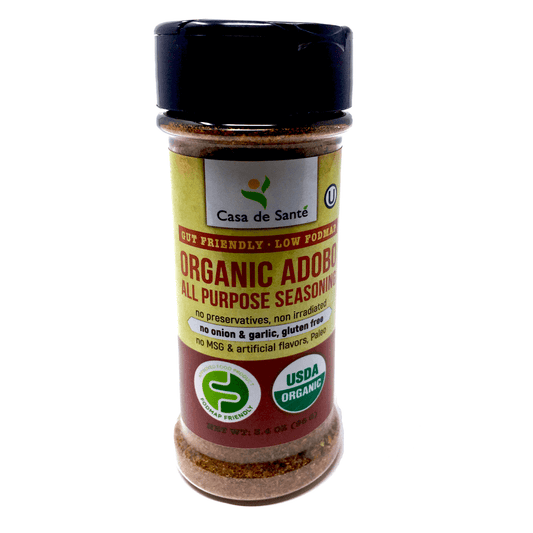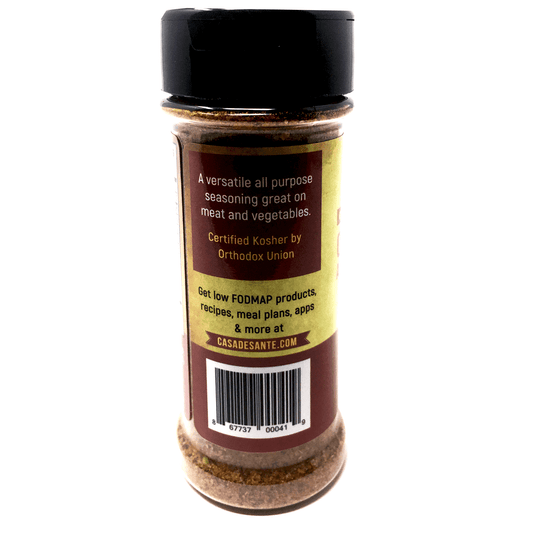Can Reflux Cause Gas And Bloating
Reflux, also known as acid reflux or gastroesophageal reflux disease (GERD), is a condition in which stomach acid flows back into the esophagus, causing discomfort or pain. Many people with reflux also experience gas and bloating, which can be uncomfortable and embarrassing. In this article, we will delve into the relationship between reflux, gas, and bloating, explore its symptoms, diagnosis, and treatment options, and provide lifestyle and dietary changes to help manage reflux-induced gas and bloating.
Understanding Reflux and Its Causes
Reflux occurs when the muscle at the bottom of the esophagus does not close properly, allowing stomach acid to flow back up into the esophagus. There are several factors that can contribute to the development of reflux, including obesity, pregnancy, smoking, certain medications, and hiatal hernia.
One of the most common causes of reflux is obesity. Excess weight puts pressure on the stomach, which can cause the muscle at the bottom of the esophagus to open and allow acid to flow back up. Losing weight can often help reduce the frequency and severity of reflux symptoms.
In addition to physical factors, certain foods and drinks can also trigger reflux. Spicy or acidic foods, caffeine, alcohol, and carbonated beverages are all known to increase the risk of reflux. Avoiding these triggers can help manage symptoms and prevent reflux from occurring.
The Relationship between Reflux, Gas, and Bloating
Reflux can cause gas and bloating in a variety of ways. When stomach acid flows back into the esophagus, it can irritate the lining of the stomach and cause inflammation. This inflammation can interfere with the proper digestion of food, leading to excess gas and bloating.
In addition to interfering with digestion, reflux can also cause gas and bloating by altering the balance of bacteria in the gut. When stomach acid enters the small intestine, it can disrupt the delicate balance of beneficial bacteria that help to break down food and absorb nutrients. This disruption can lead to an overgrowth of harmful bacteria, which can produce excess gas and bloating.
Furthermore, certain foods and drinks can exacerbate reflux symptoms and contribute to gas and bloating. Spicy or acidic foods, carbonated beverages, and alcohol can all irritate the lining of the stomach and increase the production of stomach acid. This can worsen reflux symptoms and lead to increased gas and bloating.
Symptoms of Reflux-Induced Gas and Bloating
The symptoms of reflux-induced gas and bloating can vary from person to person, but may include belching, flatulence, abdominal discomfort, and distension.
Reflux-induced gas and bloating can also cause nausea and vomiting in some individuals. This is because the excess gas in the stomach can put pressure on the esophageal sphincter, causing it to open and allowing stomach acid to flow back up into the esophagus.
In addition to these symptoms, reflux-induced gas and bloating can also lead to difficulty swallowing, a sour taste in the mouth, and a persistent cough. If left untreated, reflux can cause damage to the esophagus and lead to more serious conditions such as Barrett's esophagus or esophageal cancer.
How to Diagnose Reflux-Induced Gas and Bloating
Diagnosing reflux-induced gas and bloating can be challenging, as there is no specific test for it. However, your doctor may perform tests such as endoscopy or pH monitoring to rule out other conditions and confirm the presence of reflux.
In addition to medical tests, keeping a food diary can also be helpful in diagnosing reflux-induced gas and bloating. By tracking what you eat and when you experience symptoms, you may be able to identify trigger foods and make dietary changes to alleviate symptoms. It's important to work with your doctor to develop a comprehensive treatment plan that addresses both the underlying reflux and any dietary factors contributing to gas and bloating.
Medical Treatment Options for Reflux-Induced Gas and Bloating
Medical treatment options for reflux-induced gas and bloating may include proton pump inhibitors (PPIs), H2 receptor blockers, and antacids. These medications work by reducing the amount of acid in the stomach, thereby reducing the irritation of the esophagus and stomach lining.
In addition to medication, lifestyle changes can also help alleviate symptoms of reflux-induced gas and bloating. These changes may include avoiding trigger foods such as spicy or fatty foods, eating smaller meals more frequently throughout the day, and avoiding lying down for at least two hours after eating.
If medication and lifestyle changes do not provide relief, surgical options may be considered. One such option is fundoplication, a procedure in which the upper part of the stomach is wrapped around the lower esophageal sphincter to strengthen it and prevent acid reflux.
Natural Remedies for Reflux-Induced Gas and Bloating
There are several natural remedies that may help manage reflux-induced gas and bloating, including ginger, fennel, chamomile tea, and probiotics. These remedies work by reducing inflammation and improving the digestion of food, thereby reducing the amount of gas and bloating.
In addition to these natural remedies, it is also important to make lifestyle changes to reduce reflux-induced gas and bloating. This includes avoiding trigger foods such as spicy or fatty foods, eating smaller meals more frequently throughout the day, and avoiding lying down immediately after eating. Regular exercise and stress management techniques such as yoga or meditation may also help improve digestion and reduce symptoms of reflux-induced gas and bloating.
Lifestyle Changes to Prevent Reflux-Induced Gas and Bloating
There are several lifestyle changes that can be made to help prevent reflux-induced gas and bloating, including avoiding trigger foods such as coffee, chocolate, and spicy foods, eating smaller and more frequent meals, and maintaining a healthy weight.
In addition to these lifestyle changes, it is also important to avoid lying down immediately after eating and to elevate the head of your bed while sleeping. This can help prevent stomach acid from flowing back into the esophagus and causing gas and bloating. Regular exercise and stress management techniques such as yoga or meditation may also be helpful in reducing symptoms of reflux-induced gas and bloating.
Dietary Changes to Help Manage Reflux-Induced Gas and Bloating
There are several dietary changes that can be made to help manage reflux-induced gas and bloating, including avoiding trigger foods, eating slowly and chew thoroughly, and avoiding lying down immediately after eating. Additionally, it may be helpful to increase the intake of fiber-rich foods, which can help improve digestion and reduce constipation.
Another dietary change that can be helpful is to reduce the intake of fatty and fried foods, as these can slow down digestion and contribute to bloating. It is also important to stay hydrated by drinking plenty of water throughout the day, as dehydration can worsen symptoms of reflux and bloating. Finally, keeping a food diary can be a useful tool in identifying trigger foods and tracking progress in managing symptoms.
Tips for Living with Reflux-Induced Gas and Bloating
Living with reflux-induced gas and bloating can be challenging, but there are several tips that may help manage the symptoms. These include avoiding tight-fitting clothing, staying hydrated, and engaging in stress-reducing activities such as yoga or meditation.
Another helpful tip is to eat smaller, more frequent meals throughout the day instead of three large meals. This can help reduce the amount of gas and bloating that occurs after eating. Additionally, it may be beneficial to avoid foods that are known to trigger reflux, such as spicy or acidic foods.
If these lifestyle changes do not provide enough relief, there are also over-the-counter medications that can help manage reflux-induced gas and bloating. Antacids can neutralize stomach acid, while proton pump inhibitors can reduce the amount of acid produced in the stomach. It is important to speak with a healthcare provider before starting any new medication.
When to See a Doctor for Reflux-Induced Gas and Bloating
If you are experiencing persistent or severe symptoms of reflux-induced gas and bloating, you should speak with your doctor. Additionally, if you experience symptoms such as chest pain, difficulty swallowing, or unintended weight loss, you should seek medical attention immediately.
It is important to note that untreated reflux-induced gas and bloating can lead to more serious conditions such as gastroesophageal reflux disease (GERD) or Barrett's esophagus. Therefore, it is crucial to seek medical attention if you are experiencing any symptoms related to reflux-induced gas and bloating.
Conclusion: Managing Reflux-Induced Gas and Bloating Successfully
Reflux-induced gas and bloating can be uncomfortable and embarrassing, but there are several lifestyle changes, dietary modifications, and medical treatments that can help manage the symptoms. By working closely with your doctor, staying informed about the condition, and making necessary changes, you can successfully manage your reflux-induced gas and bloating and improve your quality of life.
One lifestyle change that can help manage reflux-induced gas and bloating is regular exercise. Exercise can help improve digestion and reduce stress, which can both contribute to reflux symptoms. Additionally, maintaining a healthy weight through exercise and a balanced diet can also help reduce symptoms.
In terms of dietary modifications, it is important to avoid trigger foods such as spicy or acidic foods, caffeine, and alcohol. Eating smaller, more frequent meals and avoiding eating before bedtime can also help reduce symptoms. Additionally, incorporating foods that are high in fiber, such as fruits, vegetables, and whole grains, can help regulate digestion and reduce bloating.
























